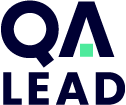Diversity has rightly become a big topic of discussion across many media and in the last few years there have been huge movements globally to try and correct imbalances in the workforce. These have included Race, Gender, LGBTQ, Age and Physical Disabilities. A lot of companies have worked really hard to close the gaps within some of these diverse areas, but for me, one which has been relatively quiet, especially within Testing or even the wider Tech industry is Neurodiversity.
Before I dive further into this, what do we mean by Neurodiversity? (Quote is taken from ACAS website – acas.org.uk)
Neurodiversity refers to the different ways the brain can work and interpret information. It highlights that people naturally think about things differently. We have different interests and motivations and are naturally better at some things and poorer at others.
Most people are neurotypical, meaning that the brain functions and processes information in the way society expects.
However it is estimated that around 1 in 7 people (more than 15% of people in the UK) are neurodivergent, meaning that the brain functions, learns and processes information differently.
To be classed as Neurodivergent, it usually means conditions such as Autism, Dyslexia, Dyspraxia, or ADHD. There may be people within your teams that have one of these conditions and you may not even have ever been aware.
I have certainly worked with high-functioning neurodivergent engineers on both a peer-to-peer level and also manager-employee level. And I’m not just saying this for the sake of this article, but I have been awe-struck at a time with how they have solved a problem or asked those questions that no-one else dare ask.
Certainly, within Testing, it is not a role which requires uniformity or everyone fitting within the same box, we need out of the box thinkers and actually I found that one of my team was an incredible Exploratory tester, as his attention to detail was incredible but he had lots of ideas of pathways through the software which others would never have thought about. Indeed, a lot of the skills we look for in testing such as “Critical Thinking”, “Attention to detail”, “Seeing the bigger picture” are all things potentially in abundance within Neurodivergent. Although maybe communication skills and stakeholder management may not be, it comes to a point where we assess what we really need, and can we work around the gaps in other ways?
I grew up with an Autistic sister, so for all of my life which I can remember, Autism has been something I have been very familiar with. This was added to when I decided to fall in love with my wife, who for years has worked as a teacher in a Special Educational Needs (SEN) school, so I have learned a lot around Neurodiversity without really knowing what I was.
I do also think it is something that, the more I think about it, I have “quirks” which could be seen as “Neurodivergency”. I can relate a lot to my friend and fellow Testing Peer Chris’ blog post about his own self-discovery into ADHD, it could easily have been me who wrote that about myself. Maybe that is why it is an area which has peaked my interest so much?
In the workplace, I don’t feel enough is being done on multiple levels to ever really close the gap for potential Neurodivergent employees to be given a fair chance. 1 in 7 in the UK may be classed as Neurodivergent, but according to research done by Helen Needham for her recent TED Talk, they are 3 times more likely to be rejected for roles…
While I fundamentally believe that we should always hire the best candidate for any given role, are we even aware of untapped talent which we may have not even considered could fit the roles?
On an episode of the Super Testing Bros podcast last year, Lee Hawkins and Paul Seaman discussed their Neurodiversity project where they were teaching testing to autistic students. This was a fantastic listen and a great idea to reach out to a group not usually considered for roles within our industry. But it raises a lot of questions like the following:
- How can we raise the awareness of roles within our industry to more Neurodivergent candidates?
- How can we make our roles and our industry appealing?
- How could we change our hiring process to make these candidates feel able to participate?
- What could we do to make our work environment a place in which these potential employees would feel able to do there best work? Or what provisions could we put in place to ensure we supported them and helped them to be successful?
Raising The Awareness Of Roles/Skills
As mentioned in the podcast above, Lee and Paul reached out to local organizations and had an Autistic charity take them up on teaching testing to students. So, I guess, in the same way, some of us in the industry have started talking in schools and universities, another option would be to reach out to charities who are trying to help get people with Autism careers and working with local organizations to offer training of the necessary skills to get into testing or tech generally.
Making Our Industry Appealing
As an industry, job adverts can be very varied in quality and detail. These can obviously be interpreted differently by different people, but think to yourself, would your role or company be appealing to a Neurodivergent candidate? Maybe they meet all the required skills to do the role, but don’t like doing presentations or talking to customers, would you be able to accommodate them and find other ways to complete the puzzle? We should see these candidates as a chance to see things differently, would they add something different to the team and make the team better? How can we, therefore, make these candidates want to work with us?
Making The Hiring Process Accessible
How do we feel our current hiring process would work with a Neurodivergent candidate? Is there any chance it could feel confrontational? How could you make it more accessible? Could interviews be carried out somewhere the candidate feels at ease? Could it be set as more of a chat, rather than an interview? If you know you have an Autistic candidate coming in, read up on Autism, and learn about some of the triggers and things an autistic person may find difficult. A site worth browsing to learn more here would be medecoded.com – a site with experience reports and articles from neurodiverse employees and how they work…
Find a way to ensure you get all you need from the interview process but also ensure you’re not putting so much effort into the neurodivergent candidates, that you are neglecting any neurotypical candidates.
Enable Them To Be Successful
Ok, so you have hired them, but now, how do you ensure they fit within the team and the ways of working? Work with them to find a way for them to be successful. You may find the open-plan office is a pain point for them, maybe they need a set of noise-canceling headphones to enable them to work in silence? Are there quiet areas where they can take themselves off to work? You may find they have some habits which seem odd to others, but will probably be partly a way of them self-regulating and keeping themselves calm. Make allowances for this and support them to ensure the team as a whole allow for this too. Ultimately, as with any employee, you want to help make them the best version of themselves they can be at work, doing all you can to nurture the talent will go a long way with that.
It really isn’t however about putting a label on these people, a lot are working perfectly fine within the tech industry already, but it is about considering them equally with other talent going for a role and learning a bit about how to get the most out of them if you do decide to hire.
This post by Simon Prior, was originally published on his blog, Priors World: https://priorsworld.wordpress.com/2019/06/03/thinking-differently-embracing-neurodiversity-in-tech/

